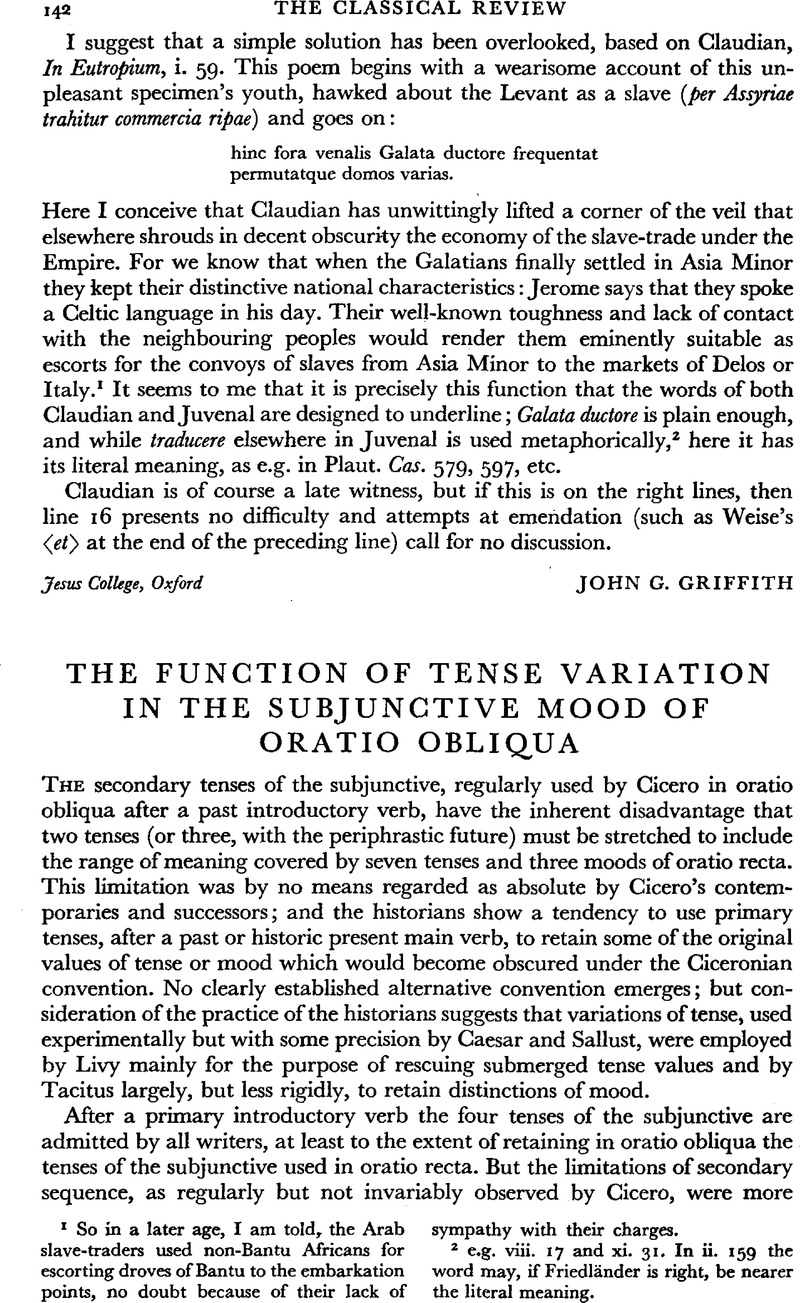Published online by Cambridge University Press: 13 February 2009

page 142 note 1 So in a later age, I am told, the Arab slave-traders used non-Bantu Africans for escorting droves of Bantu to the embarkation points, no doubt because of their lack of sympathy with their charge.
page 142 note 2 e.g. viii. 17 and xi. 31. In ii. 159 the word may, if Friedländer is right, be nearer the literal meaning.
page 143 note 1 See ‘Caesar's use of tense sequence in in-direct speech’, C.R. li. 4.
page 143 note 2 Envoys were sent ‘qui dicerent sibi esse in animo … iter per prouinciam facere, propterea quod aliud iter haberent nullum: rogare ut eius uoluntate id sibi facere liceat’.
page 143 note 3 See Conway's Appendix II to his edition of Livy ii.
page 144 note 1 e.g. coleret … pauescerent i. 59. 6, 7; exclamat irent ii. 17. 2, etc.